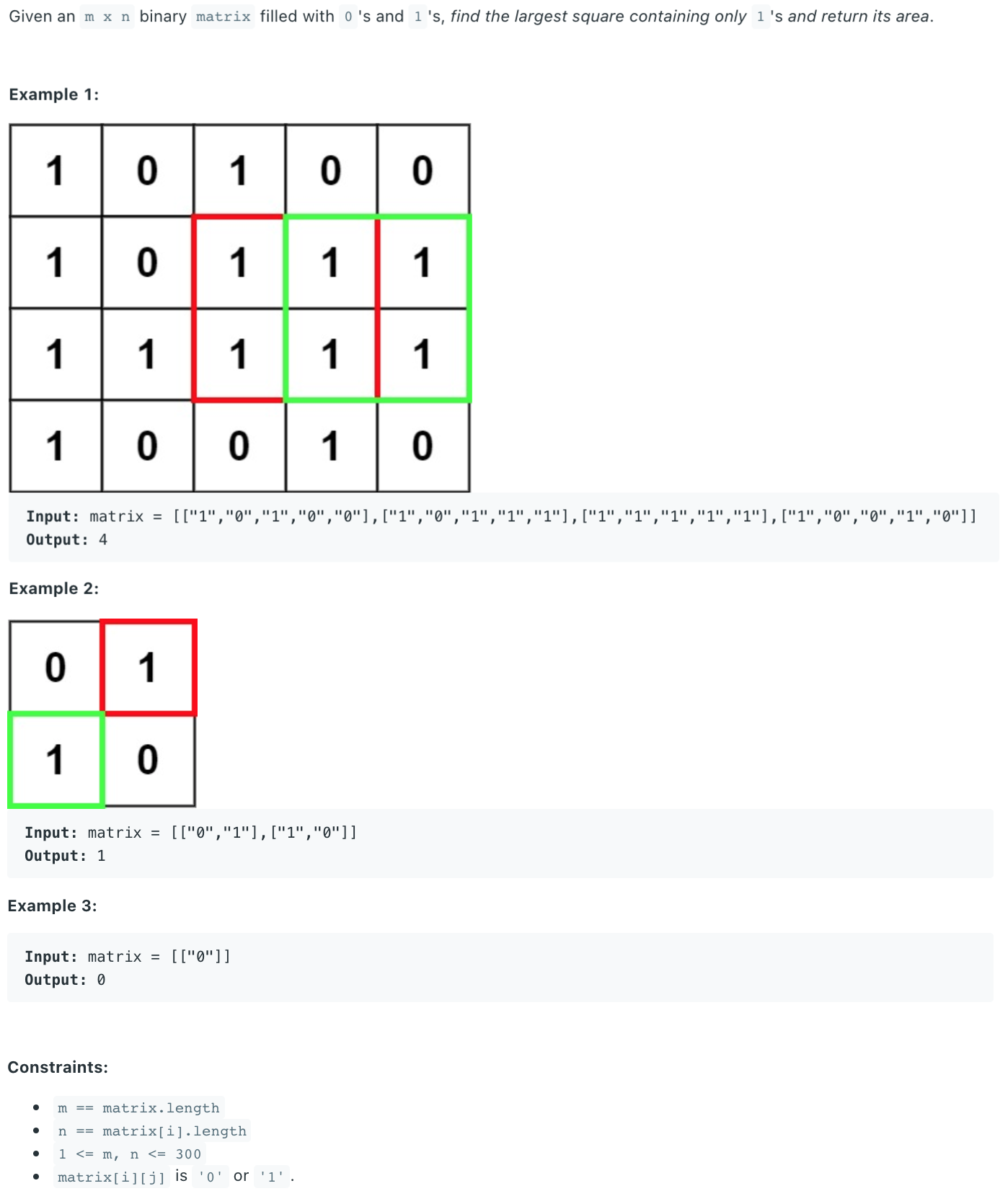Maximal Square
franklinqin0 DP

# Solution
Let be the number of rows and be the number of columns.
The state transition holds only when matrix[i][j] == '1':
dp[i, j] = min(dp[i-1, j], dp[i, j-1], dp[i-1, j-1] + 1
# Iterative DP - Squared Space
Complexity
time: single pass for each matrix element
space:
def maximalSquare(self, matrix: List[List[str]]) -> int:
n, m = len(matrix), len(matrix[0])
dp = [[0 for _ in range(m)] for _ in range(n)]
res = 0
for i in range(n):
for j in range(m):
if i == 0 or j == 0:
dp[i][j] = int(matrix[i][j])
else:
if matrix[i][j] == '1':
dp[i][j] = min(dp[i-1][j], dp[i][j-1], dp[i-1][j-1]) + 1
res = max(res, dp[i][j])
return res ** 2
1
2
3
4
5
6
7
8
9
10
11
12
13
14
15
2
3
4
5
6
7
8
9
10
11
12
13
14
15
# Iterative DP - Linear Space
Since dp only uses one entry from previous iteration: dp[i-1][j-1], we could just use 1D dp array and instead map dp[i-1][j], dp[i][j-1], dp[i-1][j-1] to dp[j], dp[j-1], and prev, respectively.
Complexity
time:
space:
def maximalSquare(self, matrix: List[List[str]]) -> int:
n, m = len(matrix), len(matrix[0])
dp = [0 for _ in range(m)]
prev = 0
res = 0
for i in range(n):
for j in range(m):
temp = dp[j]
if i == 0 or j == 0:
dp[j] = int(matrix[i][j])
else:
if matrix[i][j] == '1':
dp[j] = min(dp[j-1], dp[j], prev) + 1
else:
dp[j] = 0
prev = temp
res = max(res, dp[j])
return res ** 2
1
2
3
4
5
6
7
8
9
10
11
12
13
14
15
16
17
18
19
20
2
3
4
5
6
7
8
9
10
11
12
13
14
15
16
17
18
19
20